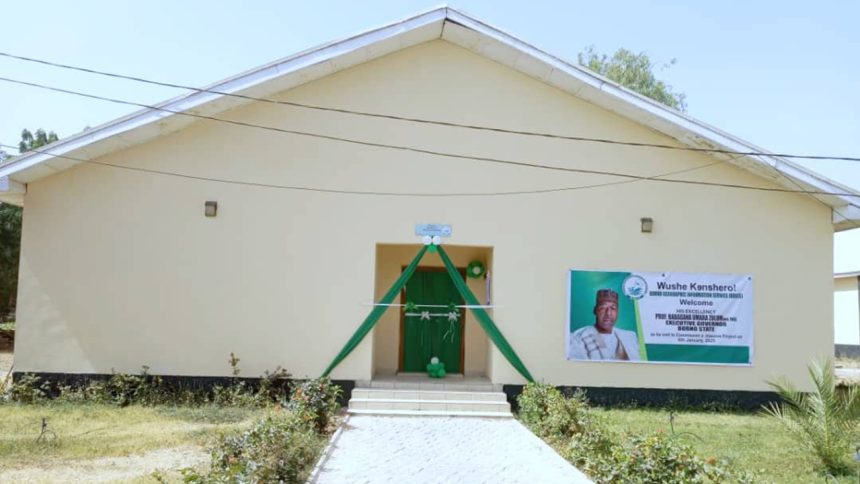The Borno State government has lauded the Geographic Information Service (BOGIS) for its innovative reforms in land administration, particularly in land title registration and compliance by developers.
Governor Babagana Zulum praised the agency during the commissioning of a 180-seater auditorium and a digitalized modern studio. “All the projects at the agency’s premises were executed with the meagre funds released, including the five per cent fees collected,” Zulum said.
BOGIS Executive Secretary, Adam Bababe, highlighted the agency’s achievements, including infrastructure development and enhanced service delivery in land administration. Bababe noted that BOGIS has issued 2,500 Certificates of Occupancy (CofO) over the past five years, surpassing the 1,700 issued between 1999 and 2019.

“We ensured efficient and reliable service delivery in land management, sustaining best practices for land tenures and title certification,” Bababe stated. He also emphasized the agency’s efforts to digitalize land processes, including the automated issuance of CofOs.
Bababe further revealed the agency’s plans for the newly inaugurated auditorium, which will host board meetings, workshops, and stakeholder engagements to facilitate land acquisition and public interest projects.
Yobe State Boosts Food Security with Rural Road Construction

In a related development, the Yobe State government has launched the Rural Access and Agricultural Marketing Roads (RAMAR) initiative to enhance food security and create employment opportunities.
Project Coordinator Musa Suleh Damagum noted that the roads would facilitate job creation in the transportation and marketing of agricultural produce and livestock.
The Commissioner for Agriculture and Natural Resources, Ali Mustapha Goniri, unveiled the RAMAR project at a stakeholder meeting in Damaturu. The meeting aimed to develop strategies for accelerating the construction and rehabilitation of critical roads across the state, emphasizing their importance for rural development and economic growth.
The twin projects in Borno and Yobe reflect a broader commitment to infrastructure and agricultural advancement in Nigeria’s northeastern region.



